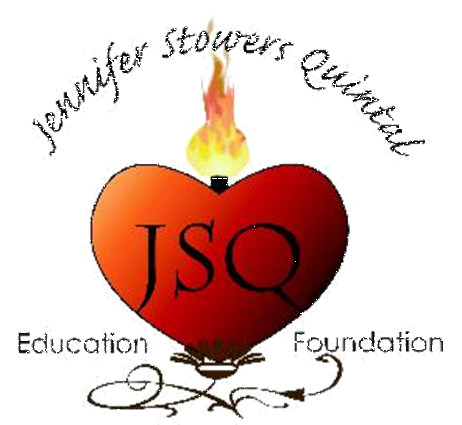
About JSQ Foundation
About Jennifer
A Word From Jennifer's Parents
Jennifer
was a beautiful, vibrant, intelligent, young woman whose life was cut too short.
It ended as she was just beginning to live out her dreams. Her life ended
just 5 days after her 23rd birthday and 6 short weeks before her
wedding to Doug Quintal. They had
planned for a perfect July 4th wedding for months and months, but
before that could happen, we,
with Doug's help, had only two days to plan her funeral.
On February 20, 2003, Jennifer went with friends to the fateful Great White concert at The Station nightclub in Warwick, Rhode Island. She escaped the fire with a few injuries, yet, it had a devastating impact on her. She was clearly shaken to her core by the enormity of the suffering caused by the fire, the lives lost, and those whose lives were forever changed by the event. Yet, she bravely made moves to work through and to overcome the trauma that she witnessed and that she suffered. On May 21, 2003 – three short months later, almost to the day – she died. She died because she sought professional help, was prescribed an FDA approved drug that she was unable to metabolize completely and that, eventually, caused her death – all without anyone knowing what was happening to her until it was too late.
This site, however, is dedicated to how she lived, not how she
died. When the time is right, the
latter will be addressed elsewhere.
Jennifer was an energetic and wonderfully spirited young woman. She had an active and mischievous sense of humor which was evident in the way she’d throw her head back to release her free and unrestricted laughter through her gorgeous smile. Yet, she was governed by a conscience and a consciousness of the plight of others. She took on the responsibility to make things better very seriously for those that she felt needed her assistance. Her activist attitudes were evident in politics, her personal life, her volunteering, and in her classroom.
Jennifer
was both a dreamer and a “doer”. She was a humanist and a humanitarian, not
just in theory, but in practice. Her friends, who represent people from all
walks of life, reflect her acceptance of individuals for their inherent value,
not for what they earn, or what they have in material wealth. She was a child
advocate, a friend of all who worked to be self-sufficient, including the
working poor; she was an environmentalist, a student of the policies that
impacted the people at ground level who had no voice in such things
She understood the concept of freedom better than most. She knew it came at a price and that anyone who lived in a free society owed those who helped make it happen. She knew that freedom was also an individual choice, but one had to accept the responsibility that goes with making that choice. She embraced her freedom and the accompanying responsibilities that go with it, to do what she felt most passionately about: her world, her community, her personal life, her classroom and her children.